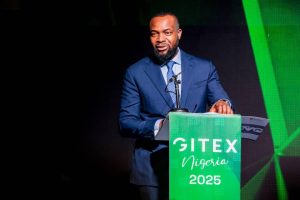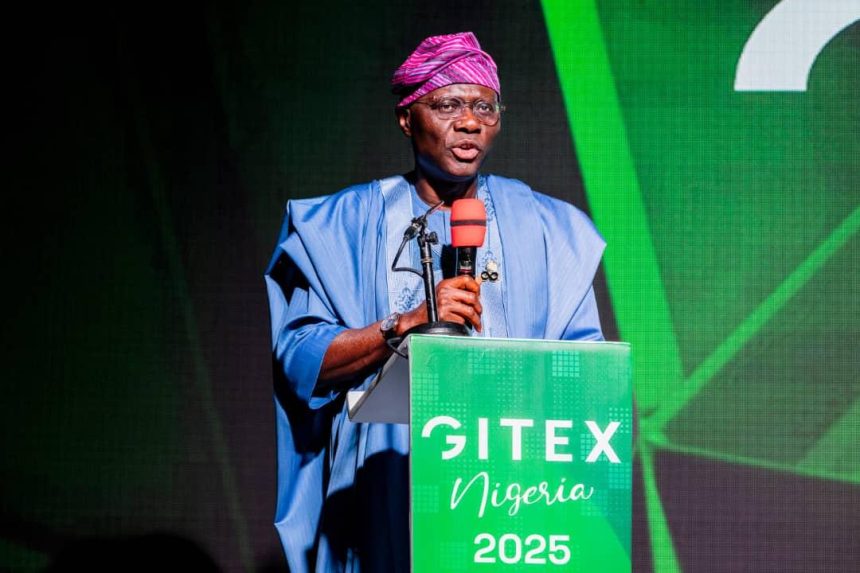By Ameh Gabriel
Nigeria has taken a bold step to cement its place as Africa’s technology leader by hosting its first international technology exhibition in Abuja, after more than a decade of active participation in global events such as GITEX Dubai, Marrakech, and Berlin.
The landmark showcase, championed by the National Information Technology Development Agency (NITDA), brought together policymakers, government leaders, investors, and startups, signaling Nigeria’s intent to drive innovation, foster global partnerships, and strengthen its digital economy.
Lagos as Africa’s Innovation Capital
Speaking at GITEX Nigeria in Lagos, Governor Babajide Sanwo-Olu revealed that the state has attracted over $6 billion in foreign investment into its tech startup ecosystem between 2019 and 2024.
“Lagos’ transformation is no longer aspirational, it is a living reality,” Sanwo-Olu said, citing investments in hyperscale data centres, submarine cables, and a citywide fibre grid as evidence of a thriving digital revolution.
Lagos now accounts for more than 70% of Nigeria’s tech inflows and has produced over 70% of Africa’s unicorns. The governor credited visionary leadership and continuity, recalling Lagos’ early adoption of Oracle database systems under then-Governor Bola Ahmed Tinubu, now Nigeria’s president.
Sanwo-Olu also celebrated the success of the Blue Line electric rail, which has transported over five million passengers in two years with zero downtime, supported by the Cowry Card, a unified, homegrown payment system now used across buses, taxis, waterways, and rail.
“At the heart of Lagos’ transformation is the belief that governance must be digital, inclusive, and data-driven. We are building a government where no Lagosian is left behind,” he said.
To sustain innovation, Lagos has also maintained a Science and Research Fund for over six years, offering ₦50–₦80 million in seed grants to startups, some of whom designed exhibition spaces used at GITEX Nigeria.
Nigeria’s Digital Economy on the Rise

Minister of Communications, Innovation and Digital Economy, Dr. Bosun Tijani, unveiled a roadmap positioning Nigeria as a digitally connected, globally competitive powerhouse.
He highlighted the sector’s rapid growth, noting that ICT’s share of GDP has risen from under 5% to 16–18%, with projections to reach 21% by 2027.
“Nigeria is not just a market, we are an innovation and creative powerhouse,” Tijani said, pointing to Nollywood’s global influence and the explosive rise of Afrobeats, which together are projected to generate over $15 billion in the coming years.
“This is where code meets culture,” he added.
To sustain momentum, Tijani announced:
- A 90,000-kilometre fibre backbone under Project BRIDGE.
- The 3MTT digital skills program, the world’s largest coordinated tech skills initiative.
- Forthcoming National Digital Economy and E-Governance Bills to enhance trust, security, and accountability.
- Expanded support for AI-driven innovation and research.
“The government is building the foundation fibre networks, talent pipelines, and enabling legislation,” Tijani said.
This inaugural GITEX Nigeria marks a turning point in the country’s digital transformation, showcasing Lagos as Africa’s innovation hub and positioning Nigeria to lead the continent’s future economy.



